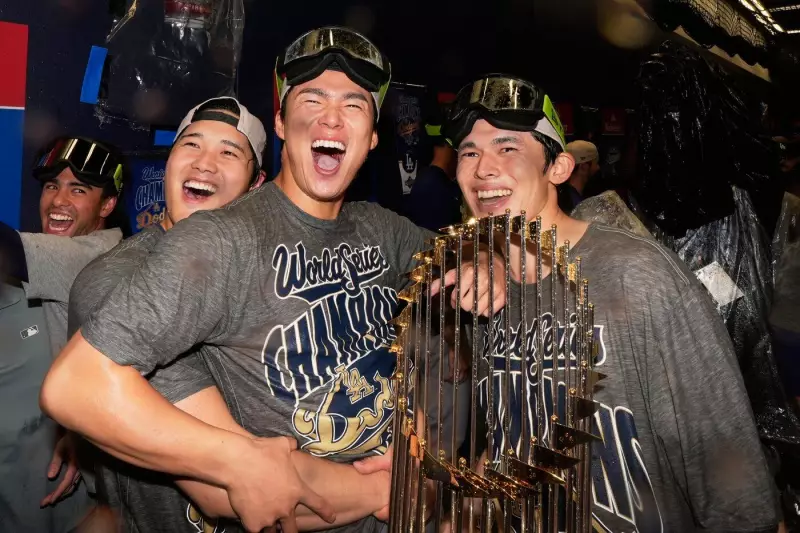
The Los Angeles Dodgers have proven that money can indeed buy championships—or at least, it can buy the kind of talent that makes consecutive World Series victories possible. After investing over half a billion dollars in global superstars Shohei Ohtani and Yoshinobu Yamamoto, the Dodgers have completed their title repeat, leaving the rest of Major League Baseball to wonder: what comes next in this new era of super-spending?
The $500 Million Blueprint
When the Dodgers committed approximately US$500 million to secure both Ohtani and Yamamoto, critics questioned whether such astronomical spending would pay off. The answer came in the form of back-to-back championships, cementing the organization's "all-in" strategy as both bold and effective.
Ohtani's unique two-way dominance combined with Yamamoto's pitching prowess created a powerhouse that proved nearly unstoppable throughout the season and postseason. The investment wasn't just in talent—it was in creating a team that captured global attention and redefined what's possible in modern baseball.
MLB's Competitive Crossroads
The Dodgers' success raises fundamental questions about competitive balance across the league. As one executive noted, "When one team can outspend everyone by this magnitude, it changes the entire landscape of the sport."
This spending spree comes at a critical juncture for MLB, which has long struggled with disparities between large and small-market teams. The Dodgers' approach demonstrates what's possible with virtually unlimited resources, but it also highlights the growing gap between baseball's haves and have-nots.
What's Next for Baseball?
As the champagne celebration settles, several key questions emerge for MLB's future:
- Will other deep-pocketed owners follow the Dodgers' blueprint? Teams like the Yankees, Red Sox, and Mets have the resources to engage in similar spending wars.
- How will smaller-market teams compete? Organizations without massive television deals or revenue streams may need to rely even more heavily on player development and analytics.
- Could this lead to changes in MLB's economic structure? The success of such massive investments might prompt discussions about salary caps or revised revenue sharing.
- What does this mean for fan engagement? While Dodgers fans celebrate, supporters of less wealthy franchises may grow increasingly frustrated with the financial disparities.
The Global Impact
The Dodgers' strategy also highlights MLB's continued global expansion. By signing international superstars like Ohtani (Japan) and Yamamoto (Japan), the team has strengthened its brand across continents while bringing unprecedented attention to the sport worldwide.
This global approach may become the new normal for teams seeking competitive advantages, potentially leading to even more intense international recruiting battles and further driving up player costs.
As baseball enters its offseason, the Dodgers' success story serves as both inspiration and cautionary tale. While celebrating their achievement, the entire sport must confront the challenging questions their spending spree has raised about fairness, competition, and the future of America's pastime.





